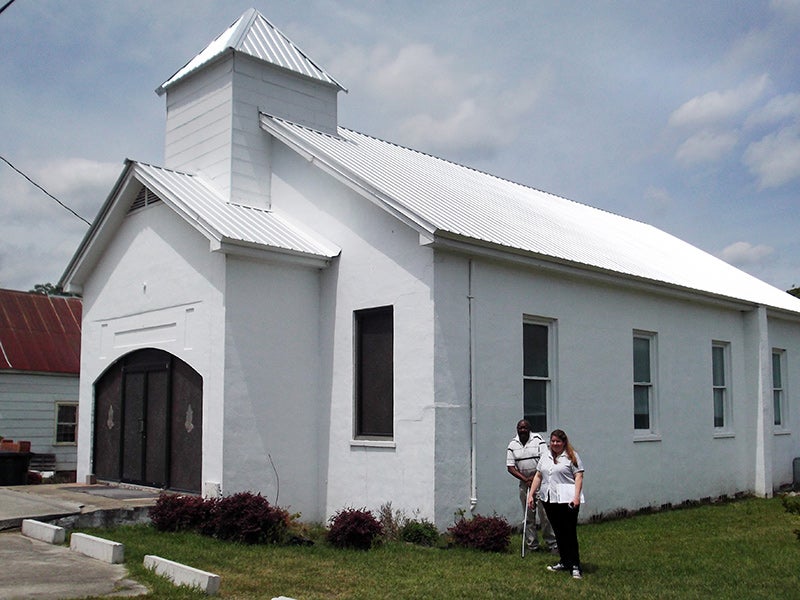Raw Sewage and a Raw Deal in Rochelle
Imagine routinely shoveling away piles of sewage and toilet paper from your yard after it rains. Such is the plight of African-American residents in Rochelle, GA, courtesy their own city government. Earthjustice is working to end this atrocity.

Can you imagine having to routinely go out into your yard after it rains and shovel away pools of your city’s raw sewage and toilet paper? Or seeing raw sewage bubbling up into your showers and bathtubs?
That’s exactly what some African-American residents in Rochelle, Georgia, have to endure, courtesy of their city government. Unbelievably, the raw sewage spills have been going on every three or four months for decades. To keep raw sewage from spewing from inside their homes during heavy rains, the residents have to go outside and open “relief valve” pipes that spew the noxious sewage into their yards.
“If we hear a bubbling sound, that means it is backing up with raw sewage,” said one resident, Sittie Butts. “We can’t wash dishes. It goes all over the yard. It smells real bad. We try to keep the kids away.”
When attorney Alisa Coe of Earthjustice’s Florida office received a call from one of the residents describing the problems, she could hardly believe what she was hearing. A visit to the neighborhood confirmed it all.
The town, about two hours south of Atlanta, is divided by railroad tracks and segregated by race. The whites live on the south side of the tracks and the blacks live on the north side. Rochelle made national news this spring after high school students organized the firstever integrated prom. The city has failed to maintain and repair sewage pipes on the African-American side of town.
James Woods, a deacon at Piney Grove Baptist Church, told us: “We had an Easter program at the church and found raw sewage all over the floors.”
On May 2, 2013, Earthjustice filed a legal notice on behalf of the residents. We notified the city that if the sewage problem was not fixed in 60 days, we will file suit under the Clean Water Act to stop the unpermitted raw sewage discharges. The sewage spills are affecting the environment as well as the neighborhood: they also overflow from manholes and broken pipes into a ditch into Mill Creek, which eventually flows to Florida’s fabled Suwannee River.
Earthjustice’s suit would prevent the city from bypassing its sewer system and endangering public health by forcing citizens to release sewage into their yards in order to keep it out of their homes.
“Sewage overflows my pipes and flows under my house. It’s time somebody did something about it,” said Rufus Howard, one of nine residents we are representing in the case. “They [the white community] live comfortable, and I want to live comfortable, too.”
“It is embarrassing that anyone in the United States should have to shovel sewage and toilet paper out of their front yard,” said Earthjustice attorney Coe. “The Clean Water Act was passed in 1972 to stop this kind of thing.”
For the residents who have sewage pipes sticking out of their yards, embarrassment is a sad fact of life on Rochelle’s north side. Sittie Butts tries to hide hers by putting a patio table with a plant over the exposed pipes. She has to move it when she’s forced to open up the valve to keep sewage from backing up into her home.
Nobody’s wanted to spend much time outside fixing up their yards because they know another sewage spill will probably happen when the rains come—and in the South in summer, the rains come often. Ever since Earthjustice filed its 60-day notice with the city, though, Butts says she sees neighbors out in their yards a bit more, fixing things up.
Finally, she says, the neighbors have some hope.
Written by Julie Hauserman.
First published in the Summer 2013 issue of the Earthjustice Quarterly Magazine.